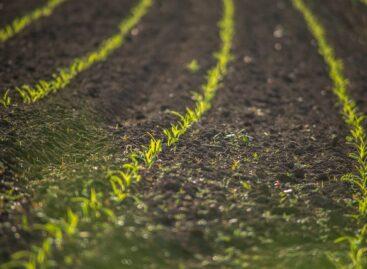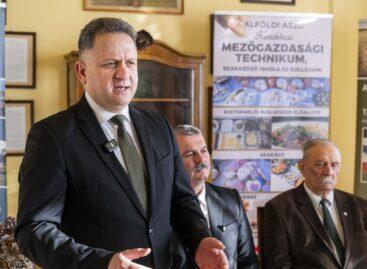MBH Bank: The prospects of agriculture have improved
Agricultural prospects have improved compared to last year, mainly based on rural development support for investment, the MBH Bank Agricultural Center said in a press conference in Budapest on Wednesday.

Dávid Hollósi, head of the credit institution’s agricultural and food business business, believes that agriculture is close to a long-standing balance in Hungary and will be higher than in other areas of the Hungarian economy in the coming years. He added that arable crop production also favors the increase in purchase prices, and although no significant change is expected, the current price level will provide them with stable profits. Harvesting was well developed in 2024, and thanks to lively demand, grain producers have gained significant capital, so they do not have to save on the raw materials needed for efficient production, the expert said, and also welcomed the drought to switch from the drought to the drought.
According to Dávid Hollósi, the prospects of livestock farmers are now slightly worsened by the threat of epidemics and the rise in feed prices
Meanwhile, dairy farmers get record prices and can expect significant demand in the international market. Application subsidies can also be significantly involved in livestock keepers and there is also a need for improvements, as half of the Hungarian agriculture is still HUF 4,000 billion a year. Although high -quality grain is marketable, Hungarian agriculture cannot be “stuck” into arable crop production, he said. According to its calculations, efficiency improving investments can be recovered quickly, up to 5 years. He added that there is no other answer to the increase in production than the development, as the costs will not be reduced. Of course, the variability of the market and the risks are not reduced by efficiency, but it is already evident from the interest of applicants that rural development funds will help more modern production and the production of better quality products. Dávid Hollósi does not expect a decrease in credit rates, and under these circumstances, interest -subsidized opportunities are appreciated, he noted.
Csaba Héjja Strategic Analyst expects the future of the international food market to be significantly influenced by customs and commerce policy, and producers must adapt quickly to changes
EU agricultural emissions will hardly increase significantly, but its center of gravity may gradually move from large Western producers to the eastern Member States, especially in animal husbandry. However, the change is also a price, as this increases the energy and raw material requirements, which is why the support of animal keepers is important in the next period, he said. According to the analyst, the domestic food industry has overcome the low point, but as an open -minded state in Hungary, external influences are always more affected. At the same time, agricultural exports can be ahead if the current funding cycle is well utilized by producers and food manufacturers well, Csaba Héjja said.
MTI
Related news
The government provides significant funding to support the development of crop dryers
🎧 Hallgasd a cikket: Lejátszás Szünet Folytatás Leállítás Nyelv: Auto…
Read more >Agricultural vocational training also places great emphasis on irrigation development
🎧 Hallgasd a cikket: Lejátszás Szünet Folytatás Leállítás Nyelv: Auto…
Read more >Related news
Lidl guarantees fairer prices for cocoa farmers
🎧 Hallgasd a cikket: Lejátszás Szünet Folytatás Leállítás Nyelv: Auto…
Read more >








